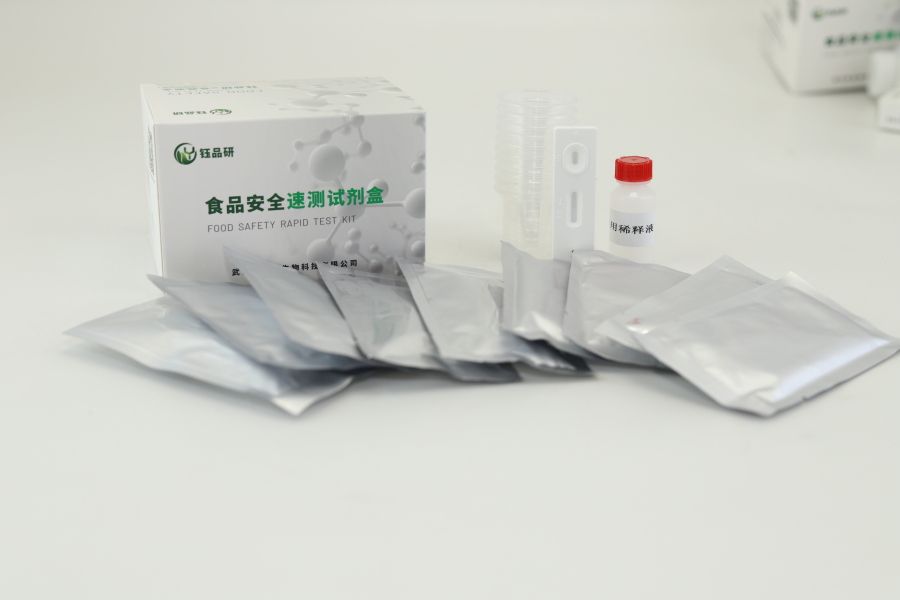
Chinese herbal medicines as a valuable resource of traditional medicine in our country, its quality and safety are directly related to people's health. However, in the process of planting Chinese herbal medicines, in order to control pests and diseases and improve yield, the use of pesticides is difficult to completely avoid, and the resulting pesticide residues have become an important factor affecting the quality of Chinese herbal medicines. Among them, the pesticide residues of common Chinese herbal medicines such as ginger and tea leaves have attracted much attention, and it is crucial to carry out scientific and efficient testing of them.
Ginger, not only a commonly used condiment, but also an important Chinese herbal medicine, has the effect of warming and dissipating cold. During the planting process of ginger, due to its growth cycle and environmental characteristics, it is vulnerable to a variety of diseases and pests, and some growers may use pesticides to ensure the harvest. If these residual pesticides are not effectively controlled, they will not only reduce the medicinal value of ginger, but may also enter the human body through consumption, posing a potential threat to health. Therefore, the detection of pesticide residues for ginger is the first checkpoint to ensure its safe use as a Chinese herbal medicine.
Tea, as a popular drink and Chinese herbal medicine, is grown in a humid and warm environment, providing conditions for the breeding of pests and diseases. In order to ensure the yield and quality of tea, the use of pesticides is inevitable. However, the way tea is consumed makes the problem of pesticide residues more prominent. Long-term consumption of tea leaves with excessive pesticide residues may cause damage to multiple systems of the human body. Therefore, strict pesticide residue testing of tea is the key to ensuring the safety of consumers drinking tea.
Pesticide residue detection plays an irreplaceable role in the healthy development of the Chinese herbal medicine industry. It can not only effectively screen out unqualified Chinese herbal medicines, prevent them from entering the market, protect the legitimate rights and interests and health of consumers, but also promote Chinese herbal medicine growers to standardize their medication and promote the development of the Chinese herbal medicine industry in a greener and safer direction. Through testing, problems existing in the planting and processing of Chinese herbal medicines can be detected in a timely manner, providing scientific basis for relevant regulatory authorities, thereby improving the quality level of the entire Chinese herbal medicine market.
Faced with the urgent need for the detection of Chinese herbal medicine pesticide residues, fast, accurate and convenient detection methods have become the pursuit of the industry. Wuhan Yupinyan Bio focuses on the research and development and production of food safety rapid detection reagents. Its related products can provide strong technical support for the detection of Chinese herbal medicine pesticide residues. This type of rapid detection reagent is relatively simple to operate, does not require complex equipment and professional laboratory conditions, and can obtain test results in a relatively short time, greatly improving the detection efficiency. It is suitable for rapid screening of Chinese herbal medicine cultivation bases, purchase points, processing enterprises and market supervision and other scenarios.
Wuhan Yupinyan Biological's food safety rapid detection reagent aims to provide a reliable solution for the safety detection of Chinese herbal medicine and other foods. Through the application of these reagents, the rapid detection of common pesticide residues in a variety of Chinese herbal medicines such as ginger and tea can be realized, helping relevant units to grasp the quality status of Chinese herbal medicines in a timely manner, and control the safety of Chinese herbal medicines from the source.
In short, the detection of pesticide residues in Chinese herbal medicines is the core link to ensure the quality and safety of Chinese herbal medicines, and the detection of key varieties such as ginger and tea is the top priority. Wuhan Yupinyan Bio will continue to be committed to the innovation and application of food safety rapid detection technology, contribute to the protection of the safety of Chinese herbal medicines, and help build a safer and more secure Chinese herbal medicine market environment.

